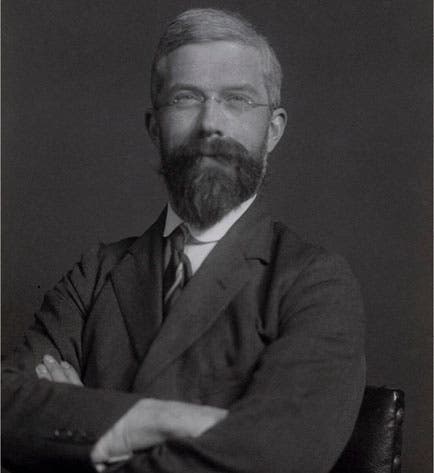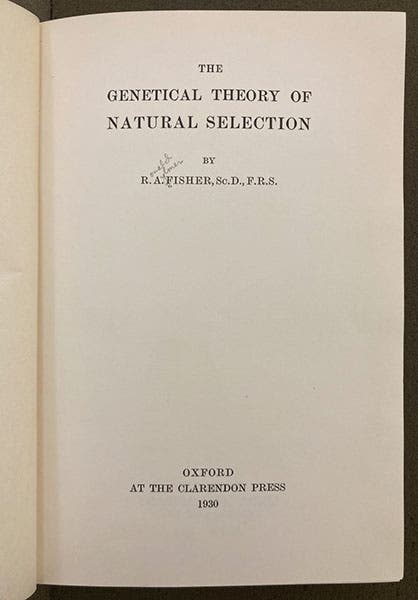Scientist of the Day - Ronald Aylmer Fisher
Ronald Aylmer Fisher, a British mathematician, was born Feb. 17, 1890. Fisher was a master of statistics, but since only statisticians can appreciate a statistical genius, we will speak here of Fisher's contribution to Darwinian evolution. In the first quarter of the 20th century, Mendelian genetics had been recovered from its 35-year hibernation, and had been convincingly demonstrated to accurately describe the facts of inheritance. But it was generally felt that Mendelian genetics was incompatible with Darwin's theory of natural selection – that small random changes in genes could not possibly explain the origin of species, and that large-scale mutations were necessary. Fisher applied his statistical wizardry to very large populations of genes, and he was able to show that small randomly-appearing genetic changes could indeed cause a genetic population to "drift" in a particular direction, and that large mutations were not necessary. His arguments and evidence appeared in a book, The Genetical Theory of Natural Selection (1930), which is considered to be the most important work in establishing what is called Neo-Darwinism, or the Darwinian synthesis, in effect, the successful marriage of Darwinian evolution to Mendelian genetics. His book marks the birth of what is now called population genetics (second image).
After he died of cancer in 1962, Fisher was honored, in the words of some, as the greatest biologist since Darwin. Gonville and Caius College, Cambridge, where Fisher had studied and later became professor of genetics, installed a stained-glass window in his honor in their dining hall, showing a 7x7 Latin square, which Fisher had used in some statistical studies, with the elements in color (fourth image, below).
However, Fisher was also an ardent advocate of eugenics, like more than a few evolutionary biologists in the first part of the 20th century. It is perhaps not surprising that, having come to understand how species populations change as a result of variations, some biologists might wonder if intervention could improve the human species. Fisher was actually Professor of Eugenics at University College, London, from 1933 to 1943. The idea seemed rational enough in the 1930s, but eugenics became darkly perverted with Hitler’s attempt to create a pure Germanic race through genocide. Unfortunately, Fisher did not disassociate himself from eugenics after the War.
For the first fifty years after Fisher’s death, his defense of eugenics was not held against him. But the modern climate is not so forgiving of misguided beliefs, and Fisher is increasingly taken to task for his advocacy of eugenics. At Gonville and Caius College, his window was removed in 2020. A laboratory at University College, London that had been named for Fisher was renamed last year as well. His star, for better or for worse, is in rapid descent. Sometimes brilliance is not enough.
Dr. William B. Ashworth, Jr., Consultant for the History of Science, Linda Hall Library and Associate Professor emeritus, Department of History, University of Missouri-Kansas City. Comments or corrections are welcome; please direct to ashworthw@umkc.edu.









